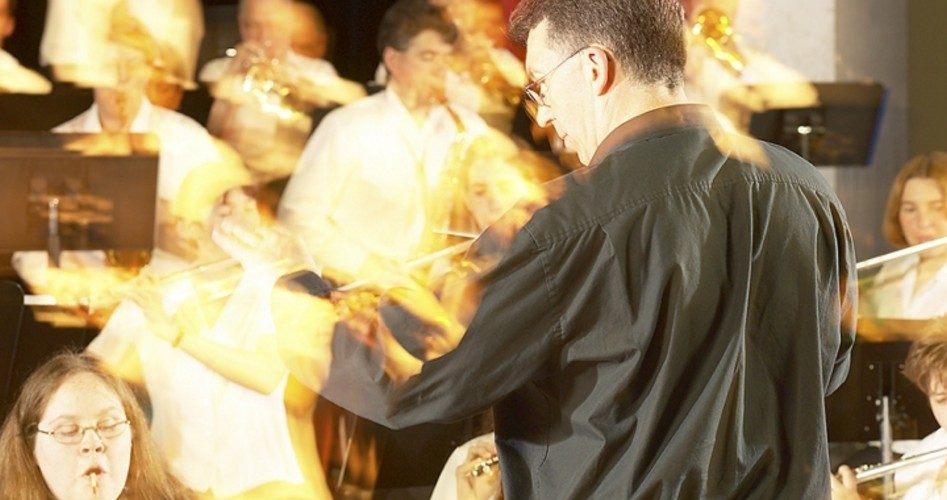
A Wisconsin school district has issued a directive to its music teachers severely limiting the religious music their school choirs will be able to perform at annual Christmas concerts. Wausau school district officials issued the nearly total ban of sacred music as a result of what they claimed were concerns over the amount of religious music being performed by choirs in the district’s schools. As a result, reported the Wausau Daily Herald, choir directors have been limited to one sacred number for every five secular songs featured at Christmas and other concerts.
Phil Buch, the director of choral music at Wausau’s West High School, said the decision prompted him to drop the Christmas program put on by his school’s elite Master Singers choir and to temporarily disband the group until the issue is resolved.
Buch said that the district officials gave music teachers at all Wausau schools three options for their upcoming Christmas programs, which, like most schools, include a fair amount of sacred Christmas carols and other religious music. Teachers had the choice of selecting five secular songs for each religious song performed by the choirs, have a concert with no holiday music at all, or drop the December concerts entirely. Buch said that because the elite 20-member Master Singers group is invited to perform at a dozen or so events during the Christmas season, none of the options were acceptable to him.
“This group sings at Christmas programs,” Buch told the Wausau newspaper. “We sing for nursing homes, grade schools, and businesses. To do that without Christmas music doesn’t make sense.”
Wausau School Board President Michelle Schaefer insisted that the district directive is not meant to eliminate sacred music from the schools, but merely to prevent teachers from including “too much” religious fare. “From a School Board perspective, we look for music that is balanced,” Schaefer told the Daily Herald. “Yes, we are a predominantly Christian society, but we are also a society of many faiths, and we want to respect that.”
In a subsequent statement, the school district said that it had issued the directive in order to “ensure that all music classes and performances sponsored by the District are conducted in accordance with the law, and in a manner that shows respect for the varied backgrounds and beliefs of all of our students and families.”
According to the statement, “at no time has the District prohibited the use of religiously-themed Christmas music in winter concerts or directed teachers to eliminate such music from the curriculum. Rather, District administration has taken steps to help ensure that religiously-themed music is incorporated into the curriculum and performances in a manner that satisfies legal and educational requirements.”
One school board member, Pat McKee, told Fox News that the decision implemented by the district has rankled community members, who view it as a war on Christmas. “When you look at it on the surface, it’s hard to argue against that train of thought,” he said.
McKee said that he has been unable to locate anyone who has actually complained about religious music in the schools. “I’ve asked the superintendent to provide me the complaints,” he told Fox. “I’ve received nothing.”
A Wausau parent has launched a Facebook page encouraging other parents and residents to express their displeasure to the district, which she said appears to be making a decision that is antagonistic toward the Christian faith. “I don’t know what else to conclude that it is,” Meg Ellefson told Fox News. “It appears to be anti-Christian — unless they are fearful of offending a very small minority of people.”
Ellefson said that like other school parents, she is “really disappointed and saddened. I went to public school growing up and I learned all the Christian-themed carols in my public school. I sang them in my public school. If it’s not a problem last year, or ten years ago, or 20 years ago, why is it a problem now?”
Buch said that the district’s decision is at odds with standard practices for school music curriculums, noting that sacred music comprises a majority of relevant choral music literature. In fact, the National Association for Music Education, which oversees many school music programs in the United States, emphasizes that the “study and performance of religious music within an educational context is a vital and appropriate part of a comprehensive music education.” According to the group, severely limiting the amount of sacred music students are exposed to would equate into an incomplete educational experience for students.
Buch conceded that he is a “man of faith … but I am also a man of integrity. I choose music that stands the test of time. We perform music for the beauty and the art of it.”
He explained that as a music teacher his goal is to provide his students with a wide range of musical experiences using as many genres as possible. He challenged the notion that there is a religious motivation in the music he selects. “We perform Hebrew songs, Italian songs, Russian songs, Canadian songs,” Buch told the Daily Herald. “We run the gamut. To say I promote religion by the musical choices I make would not be a correct statement.”
In the face of overwhelming opposition to their directive, district officials have said they will take another look at the issue in the coming weeks to try to come to a happy medium. However, with the holiday season fast approaching, music teachers have said it appears that there may be no Christmas concerts this year.



